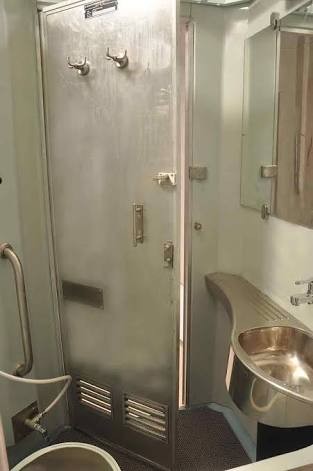
Indian Railways makeover initially started with upgrading of toilets inside coaches of trains. Back in the 90s and prior to that and even in the early 21st century, lack of cleanliness on Indian trains and particularly in toilets had always been a big issue which Indian Railways tried to shed in recent years. But it never worked out. The upgraded bio toilets generated even more complaints from passengers. Most of the complaints states toilets were getting blocked due to waste dump such as plastic bottles or papers. Initially bio-toilets was explained as such that human waste will be digested by anaerobic bacteria which converts it into bio gases and water. But in real world condition this never worked out. Bio toilets normally gets clocked out, gets very stinky within few weeks of uses.
Now to come up with this problem, Indian Railways will install bio vacuum toilets - the kind found in aircraft. The national Transporter will upgrade train coaches with imported bio vacuum toilets. According to the official statement, the first hundred coaches equipped with bio vacuum toilets will be attached to Indian Railways premier trains like Rajdhani, Shatabdi and Duronto. From January 2018 these trains might get the newly installed vacuum bio toilets.
Explain feature of bio vacuum toilets is that they will cut down water uses by over 1/20th and will remain odour free. Also there would be lesser chances of these toilets getting blocked due to other waste products. The Railway official states that saving water is a Priority for Railways, therefore, the need of the hour is that Railway should shift to bio vacuum toilets as soon as possible, because in normal bio toilets the water requirement per flush can rise up to 15 litres. What as bio vacuum toilet only requires about half a litre of water. In this toilet, waste is cleared mainly through suction.
Indian Railways deployed bio toilets at the cost of rupees 1305 crore rupees over a period of 4 years. But a 2 years long is study by IIT Madras states that these toilets are not more than septic tanks stinking all the time. The study pointed out that bio toilets are ineffective and not maintained properly besides lack of water discharge is also not sufficient for the raw sewage. Currently more than 900 trains have bio toilets